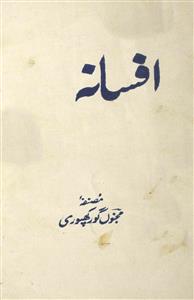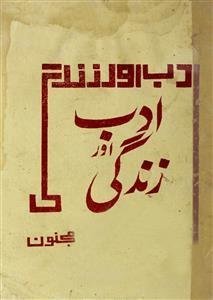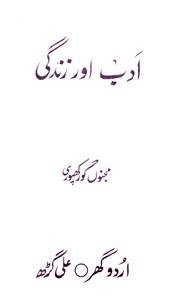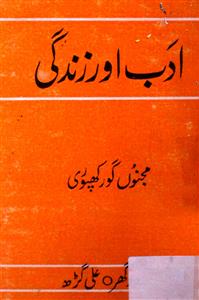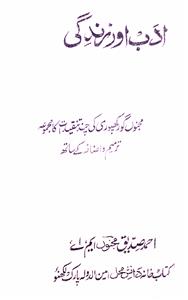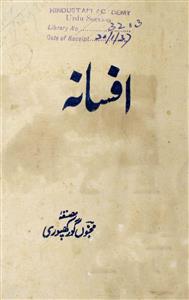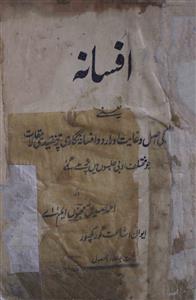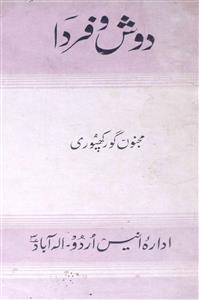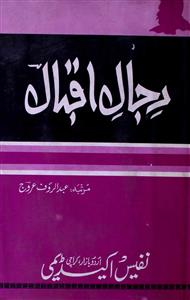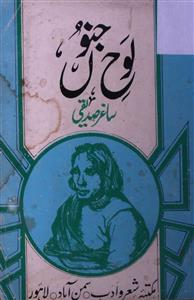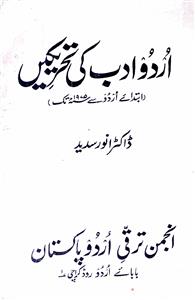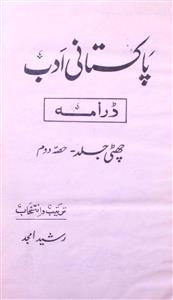 For any query/comment related to this ebook, please contact us at haidar.ali@rekhta.org
For any query/comment related to this ebook, please contact us at haidar.ali@rekhta.org
About The Book
مجنوں گورکھپوری اردو کے نامور ناقدوں میں شمار کیے جاتے ہیں۔ تحقیق سے بھی ان کا گہرا شغف رہا ہے اور موضوع کے تحت ان کی متعدد تحریرں ہیں، تاہم زیر نظر کتاب ’افسانہ‘ بظاہر افسانہ نگاری کی جانب توجہ مائل کرتی ہے مگر کتاب دراصل تنقید سے وابستہ ہے۔ اس میں انہوں نے افسانہ نویسی کی فن، تکنیک اور اجزائے ترکیبی وغیرہ کے جائزہ سے متعلق مقالے تحریر کیے ہیں۔
About The Author
Critic, poet, short story writer, and translator, Majnoon Gorakhpuri played a major role in creating ideological bases for the appreciation of Progressive Writers Movement. He was born on May 10, 1904 in a prominent family of Pulwa/Milki Jote in the Basti district of Uttar Pradesh. His father, Farooque Diwana was also a poet and professor of Mathematics at Aligarh Muslim University. Majnoon received his early education at village Manjhar. He got certain expertise in Arabic, Persian, and Hindi at an early age. After completing his studies of Dars-e-Nizamia, he acquired his intermediate and graduation degrees from Gorakhpur, Aligarh, and Allahabad. Subsequently, he got his M. A. (English) degree from Agra university in 1934 and then M. A. (Urdu) from Calcutta University. After completing his education, he started teaching at Aligarh Muslim University. Majnoon had a comprehensive understanding of Western literatures as well.
Majnoon wrote on important literary issues of his times and established himself basically as a critic. Adab aur Zindagi, Dosh-o-Fardaa, Nukaat-e-Majnoon, Sher-o-Ghazal, Ghazal Sara, Ghalib: Shakhsh aur Shair, Schoppenheur, Taarikh-e-Jamaaliyaat, Pardesi ke Khutoot, Nuqoosh-o-Afkar are his critical works. He also published four collections of his stories called Khwaab-o-Khayaal, Saman Posh, Naqsh-e-Naheed, Majnoon ke Afsaney. He also translated the selected works of Oscar Wilde, Tolstoy, and Milton into Urdu.
He died on June 04, 1988 in Karachi.
 For any query/comment related to this ebook, please contact us at haidar.ali@rekhta.org
For any query/comment related to this ebook, please contact us at haidar.ali@rekhta.org
